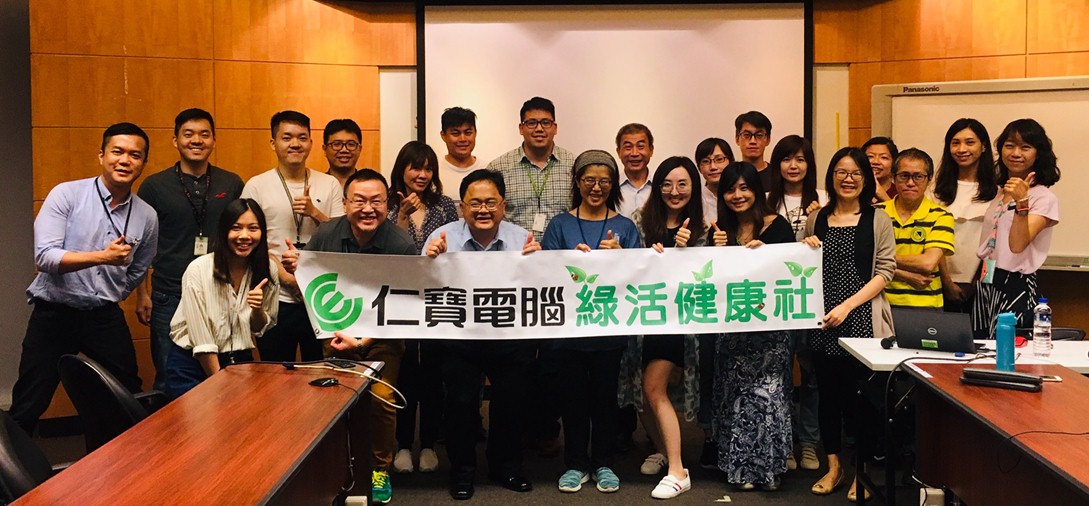Compal Electronics "Coral Conservation - Marine Ecology" Lecture
2019 / 07/ 08

On July 8th, Compal Electronics’ Green Life Health Club invited Secretary-General Chen Yingling(陳映伶) of Taiwan Environmental Angel Environmental Conservation Association to talk about her life from being a full-time mother and a marine volunteer, to promoting marine education and establishing the "Taiwan Environmental Angel Environmental Conservation Association" and starting the "Give me a Small Abalone Pool - Marine Ecology Rehabilitation Project" and experiences from "Diving into Marine Ecology - Coral Conservation."
Coral is an important resource for marine life as it nurtures life and provides food. It also absorbs carbon dioxide, and slows down global warming. In the summer of 2015, the "Taiwan Environmental Angel Environmental Conservation Association" began to cultivate coral growth, transplanted coral seedlings and returned the ecology of small abalone pools to its natural states, giving birth to a new sense of vitality. 90% of the world's current coral is gradually disappearing, and the remaining coral continues to face problems of bleaching, overfishing, and destruction by the tourism industry.
Coral takes time to grow, and Secretary-General Chen believes that the ocean teaches people on the importance of "returning to an original and natural state and only taking what is given.” If colleagues can learn to gradually slow down the pace of their lives, they will naturally see an increase of positive energy that contributes to their physical and mental health.
It is recommended that people start from the most achievable areas in daily life when caring for marine ecology. One example would be to choose to eat only sustainable and safe seafood when making dietary choices; one can also take in more knowledge regarding environmental conservation and not generating any plastic waste; people should also travel with their hearts and use their eyes to appreciate the journey; they shouldn’t litter or take away stones, sand or wildlife from their habitats.
The ocean is inextricably connected to people's lives, and people should take specific acts of conservation to preserve marine ecology and support the protection of the ocean.
